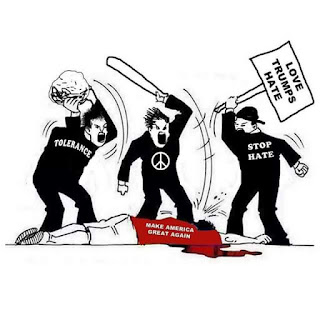The Indian Express
written by Staff
Thursday June 30, 2016
Approximately, China has 20 million-strong Muslim population, and the far-western region of Xinjiang is home to 10 million Uighur Muslims.
A Pakistan Ministry of Religious Affairs delegation has left for China to determine the reported reason for the Chinese authorities to ban fasting in Muslim-majority Xinjiang province during Ramazan.
A ministry official was quoted by the Express Tribune, as saying that Beijing has formally requested Islamabad to send a delegation to Xinjiang to ascertain the facts.
The delegation includes the Director General (Research), Noor Islam Shah, and Faisal Mosque chief cleric Ziaur Rehman. They will ascertain facts regarding the reported ban on fasting.
It was earlier reported that Chinese authorities had marked the start of Ramazan with a customary ban on civil servants, students and children in the mainly-Muslim region to fast, the report clearly rejected by Chinese government as baseless.
Chinese officials refuted the reports saying the country’s constitution guarantees religious freedom.
Approximately, China has 20 million-strong Muslim population, and the far-western region of Xinjiang is home to 10 million Uighur Muslims.
[source: Wikipedia]
Chronology of major events [For those of you who don't know, Uyghur's are Muslims. Their list starts in 1992. If you'd like to read the entire list they've provided, please click HERE. (emphasis mine)]
Following is a partial list of events that have been described as terror attacks or attempted terror attacks by non-state actors in the People's Republic of China. Due to variations in the definitions and applications of the term, the characterization of some events as terrorist attacks may be disputed. Many incidents listed occurred in Xinjiang or Tibet—areas where foreign journalists have extremely limited access, and are closely monitored if and when they gain permission to report in the regions. As such, many reports of violence or terror attacks cannot be confirmed independently, and foreign reporting frequently relies on information released by the government of China or in the state-run press. In several instances, conflicting narratives of these have emerged from witnesses or from diaspora groups.
August 19, 2010: According to Chinese media reports, six ethnic Uyghur men were allegedly involved in loading a vehicle with explosives and driving into a group of security officers at a highway intersection near Aksu, Xinjiang. Seven people, including two attackers, were killed, according to police. In the wake of the attack, authorities in the region vowed to crack down "relentlessly" on criminal activity.
July 18, 2011: Chinese media reported that 18 people died when 18 young Uyghur men stormed a police station in the city of Hotan. The men were alleged to have stabbed a security guard and two female hostages, and killed another security guard with a bomb. The attack ended when security officers shot and killed 14 of the attackers. Chinese media initially referred to the attackers as rioters or thugs, though subsequent accounts called the event a terrorist attack. The Germany-based World Uyghur Congress provided a different accounts of event, saying that authorities provoked clashes by opening fire on Uyghurs participating in a non-violent protest against heavy-handed security crackdowns in the city. The Turkistan Islamic Party later claimed responsibility for the attack.
July 30-31, 2011: At least 18 people died in a series of alleged terrorist attacks in the city of Kashgar. According to state-run media accounts, the violence began when two Uyghur men hijacked a truck, ran it into a crowded street, and started stabbing people, killing six. The attack ended when the assailants were overpowered by the crowd, which killed one attacker. On the second day, state-run media reported that a "group of armed terrorists" stormed a restaurant, killed the owner and a waiter, and set it ablaze. They then proceeded to indiscriminately kill four more civilians. Armed clashes then reportedly ensured, ending with police capturing or killing the attackers. The Turkistan Islamic Party later claimed responsibility for the attack. One of the suspects appeared in a TIP video training in Pakistan.
June 29, 2012: Chinese official media reported that six men attempted to hijack Tianjin Airlines flight GS7554 from Hotan to Urumqi, Xinjiang. The men reportedly sought to gain access to cockpit ten minutes after takeoff, but were stopped by passengers and crew. A spokesperson for the Xinjiang government said the men were ethnic Uyghurs.[110] Xinhua reported at least 10 passengers and crew were injured when six hijackers tried to take control of the aircraft. The World Uyghur Congress contested the official account of events, claiming instead that a dispute over seating broke out between Uyghurs and ethnic Han. The WUC suggested the event was being used as a pretext to "reinforce repression" in Xinjiang.
April 24, 2013: It was an incident of ethnic clash that took place between Muslim Uighur and Han Chinese community.As reported by BBC nearly 21 people were killed in the incident including 15 police officers.
June 26, 2013: At least 35 people were killed in clashes between ethnic Uyghurs and police in the deadliest altercation in the region since 2009. Chinese official media reported that a group of 17 knife-wielding Uyghur men attacked a police station and government building. Chinese authorities pronounced the event a terrorist attack, and blamed separatists and overseas forces for fomenting tensions. The World Uyghur Congress blamed the event on "continued suppression and provocation" by Chinese authorities in the region. Foreign media outlets were prevented from visiting the area to investigate.
October 28, 2013: A fiery car blaze at Tiananmen Square that killed five and injured dozens was a premeditated terrorist attack, Chinese police said after making five arrests in connection with the case.
March 1, 2014: An unidentified group of knife-wielding men and women attacked people at the Kunming Railway Station.
September 18, 2015: An unidentified group of knife-wielding men attacked off-duty workers at a coalmine, killing 50, among them 5 police officers.
************
The Diplomat
written by Shannon Tiezzi
November 27, 2015
After the Paris attacks, China pledged to support the international fight against terrorism. But how?
On November 13, gunmen and bombers affiliated with Islamic State (ISIS) attacked Batalcan Theater, cafes, restaurants, and the Stade de France in Paris, killing 129. A week later, armed gunmen took 170 hostages in the Radisson Blu hotel in Mali’s capital, Bamako. In between, ISIS announced that it had executed two hostages, a Norwegian and a Chinese citizen.
Each of these events impacted China directly. One Chinese citizen was shot but survived the Paris attacks; three Chinese were killed in the Mali hotel attack; and hostage Fan Jinghui’s murder was confirmed by China’s Foreign Ministry.
After the events of the past two weeks, China has being facing more pressure – both domestically and internationally – to clarify its contributions to the fight against terrorism. Government officials, from ministry spokespeople to Xi Jinping himself, have been clear cut about China’s revulsion toward terrorism. The question is how China plans to fight it.
One thing is clear: an American-style “war on terror,” with military operations overseas designed to attack and overrun terrorist strongholds, is not in the cards for Beijing. China’s non-interventionist foreign policy wouldn’t necessarily prevent China from sending its military to help fight terrorist groups like ISIS, if (and only if) the host country requests it. But even countries that have openly asked for China’s aid, such as Iraq, have received only promises of personnel training and other support. China simply isn’t interested in placing boots on the ground (or missile in the air, for that matter) to fight international groups like ISIS. And given how little effect military strikes against ISIS have had so far (and the mixed results of the long-standing U.S. operations against the Taliban in Afghanistan), it’s easy to understand how Beijing reached that decision.
But the question remains: if China doesn’t subscribe to a literal war on terror, how does it propose to contribute to the global effort to eradicate terrorism, which Chinese leaders vocally supported over the past two weeks?
When asked to specify how China will work with the international community to fight terrorism, Foreign Ministry spokesperson Hong Lei was predictably vague, but did offer some hints toward China’s next moves.
First, Hong said, “We call on all relevant parties to coordinate with each other and forge synergy under [the] UN framework.” Chinese Foreign Minister Wang Yi has also spoken of the need to coordinate the global response to terrorism through the United Nations. “The UN’s leading role should be brought into full play to combat terrorism, and a united front in this regard should be formed,” he said on the sidelines of the G-20 summit in Turkey, shortly after the Paris attacks.
Touting the UN as the overseer of global counter-terrorism operations meshes well with China’s interests. For one thing, China wants to see a UN-approved definition of terrorism – which would include China’s own issues with Uyghur separatist groups, thus ending once and for all what China sees as the West’s “double standard” toward terrorism. If the UN was recognized as the coordinator of counter-terrorist operations, it would also restrict U.S. military interventions in the name of fighting terror.
In fact, China’s vision for UN-led approach to counter-terrorism doesn’t seem to include military operations at all. As Hong told reporters on Monday, “The international community should implement relevant UN resolutions, and carry out more cooperation in blocking cross-border flow of terrorists, cutting off the secret financing channels for terrorism, and fighting cyber terrorism.” Tellingly, all of these are actions that can be accomplished through government-to-government meetings, sharing of best practices, and the other sort of achievements reached in high-level dialogues. Nowhere did Hong mention coordinating strikes or attacks on terrorists.
That’s keeping with China’s insistence that both the “root cause” and the “symptoms” of terrorism should be addressed together. In Beijing’s view the “war on terror” as exemplified by the United States focuses too much on the symptoms – eradicating militant activity – without addressing the conditions that led to terrorism.
A recent Xinhua piece outlined China’s vision for how to fight terrorism in Africa, and it had nothing to do with military operations against groups like Boko Haram, Al-Shabaab, and al-Mourabitoun (which claimed responsibility for the November 20 hotel attack in Mali). Instead the piece focused on supporting the affected states to fight their own battles against extremists, by providing “technological aid and intelligence sharing.” Xinhua also argued that, by arming rebels around the world, the West has made terrorist groups stronger, rather than weakening them.
In this light, China sees its economic outreach to Africa (and the Middle East) as steps forward in the fight against terrorism – ways to tackle terrorism at the root by eliminating poverty and providing employment for those who might otherwise be drawn to extremist groups.
Of course, China’s understanding of the “root causes” of terrorism can be called into question based on its actions in Xinjiang province, where heavy-handed security measures may actually be backfiring and increasing terrorist activity. China seems to cling to the belief that economic development can cure all ills, whether in Xinjiang, Mali, or Afghanistan — despite evidence to the contrary in China’s own far-western province. Still, Western military efforts haven’t proved much more successful either.
As China grows in prominence, and as its global interests are increasingly impacted by terrorist networks overseas, expect Beijing to become more vocal about its own strategy for fighting terror — without actually fighting.







































No comments:
Post a Comment